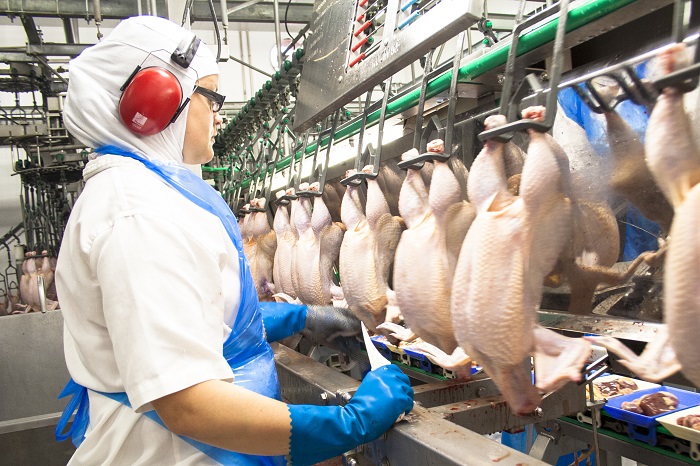The British Poultry Council (BPC) has expressed shock after the publication of a report by the Migration Advisory Committee, which has almost completely ignored lobbying by the food sector for continued access to migrant labour.
The report on European Economic Area migration explores current and likely future patterns of EEA migration into the UK and makes a series of recommendations for designing the UK’s post-Brexit system for work-based immigration.
The report, which was commissioned by the government ahead of Brexit, suggests EU workers should be subject to the same visa rules as other migrants, but it notes the UK might offer them special status under a Brexit deal.
The report highlights that while the UK’s top earners have benefitted from the free movement of people allowed under EU membership, the effect on the lowest earners has been to suppress wages.
The government has said it will “carefully consider” the committee’s proposals.
Business leaders lined up to criticise the report as elitist because of the proposed ban on foreign workers earning less than £30,000 a year from obtaining visas to work in the UK after Brexit.
The BPC said it was “extremely shocked in the disregard shown in the report to food and farming as a whole, the majority of which would have emphasised the importance of non-UK workers in responses to the original consultation.
“Whilst there is a section on the Seasonal Agricultural Workers Scheme (SAWS) and references to approach to EEA migration in Northern Ireland causing difficulties for the agri-food sector, it is disappointing that there is a lack of references to the impact of EEA migration on the need for permanent workers in the agri-food industries.”
The poultry industry has repeatedly told government it requires more than seasonal workers to staff processing plants throughout the UK, which in some cases have up to 90% of its staff from EU countries.
The BPC has argued in order to sustain the 37,000 jobs directly employed by the sector it is vital that the UK secures access to high-quality labour by introducing a flexible visa system. Given that 60% of the poultry sector’s workforce is from Europe, and that Brexit could drive up the costs of labour by 50%, maintaining free-flowing access to migrant labour is crucial to the competitiveness and sustainability of the industry.
“For the poultry industry to thrive, we would like to see a post-Brexit visa system that allows migrant labour to enter the UK to do jobs that British labour does not presently have the capacity or inclination to take on,” said Richard Griffiiths, chief executive of the BPC.
Net migration to the UK in the year to the end of March 2018 was 270,000, an increase of 28,000 year on year, and far in excess of the 100,000 target introduced under David Cameron’s government. But net migration from the EU sank to 87,000 in the same period, the lowest level since the Brexit vote in June 2016, according to the most recent set of figures from Office of National Statistics.
The role of vets in the poultry supply chain has also been brought into focus by the report. The British Veterinary Association (BVA) said it welcomed the evidence-based approach but raising concerns about how some proposals will translate in the real world, especially for vets carrying out vital public health roles.
“We would be concerned about how some of these recommendations would play out in reality given the veterinary profession’s high dependence on the EU for workforce supply,” said John Fishwick, BVA President. “Nearly half of vets registering to work in the UK every year come from the EEA, so it’s critical that any changes to migration policy are designed to maintain capacity and guard against sudden shortages rather than introducing new layers of bureaucracy such as the onerous application for licences to sponsor employees or restrictions on flexible movement between roles.
“While it makes sense to create a level playing field for the migration of skilled workers after Brexit, this could hit parts of the sector hard if the Immigration Skills Charge is extended to the recruitment of EU workers.”
In the abattoir industry, 95% of Official Veterinarians monitoring animal welfare standards and upholding food safety in the supply chain hail from overseas, mainly from the EU, introducing a charge would be detrimental both to businesses and public health, said Fishwick. “We would urge for the recommendation to be reviewed ahead of implementation before it can do lasting damage in this vital area of the workforce.”
The committee’s next report – on the Shortage Occupation List – is the one that the veterinary profession will be awaiting with bated breath. BVA has worked hard to make a strong case for reinstating vets on the list. “ This would deliver lasting impacts and is the best place to start to stave off a crisis in workforce capacity,” said Fishwick.


